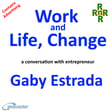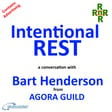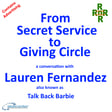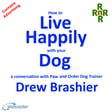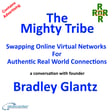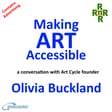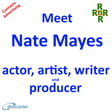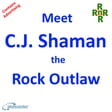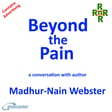
The Value of Learning to Play Guitar – a conversation with world class guitarist Jonathan Taylor
Jonathan Taylor has won praise from audiences, critics and fellow musicians around the world. The Philadelphia Inquirer described him as "America's Leading Classical Guitarist"
You can see why on his YouTubechannel.
In this episode of the Abeceder Work Life Balance podcast, Rest and Recreation Jonathan describes how he became a guitarist and the impact that learning a musical instrument has had on his life.
Jonathan talks about the process of learning, and how his need to learn more crafted personality and behavioural traits that made him stand out from his peers.
The more Jonathan learnt, the more he wanted to learn, and the more confident he became.
Whether you are a music love or a player, you will find this insight into the mind of a maestro enlightening and understand the wide-ranging benefits of committing to learning a new skill.
Rest and Recreation is made on Zencastr, the all-in-one podcasting platform, on which you can create your podcast in one place and then distribute it to every platform.
Zencastr really does make making content so easy.
If you would like to try podcasting using Zencastr visit zencastr.com/pricing and use our offer code ABECEDER.
Thank you to the team at Matchmaker.fm for introducing me to Liam. If you are a podcaster looking for interesting guests or if like Keith, you have something interesting to say Matchmaker.fm is where matches of great hosts and great guests are made. Use our offer code MILW10 for a discount on membership.
Travel to California
Jonathan Taylor is based in California USA. Members of The Ultimate Travel Club can book travel to California or anywhere else in the world at trade prices. Use our offer code ABEC79 to receive a discount on club membership fees.
Visit Abeceder for more information about both Michael Millward, and Jonathan Taylor.
Tech Problems?
If you are using your smartphone to listen to Rest and Recreation and experienced connection problems, you would probably like to know that Three has the UK’s fastest 5G network with unlimited data, so listening on Three means that you can wave goodbye to buffering.
Visit Three for information about business and personal telecom solutions from Three, and the special offers available when you quote our referral code WPFNUQHU.
Being a Guest
If you would like to be a guest on Rest and Recreation, please contact Abeceder.
We recommend that potential guests take one of the podcasting guest training programmes available from Work Place Learning Centre.
If you have liked this episode of Rest and Recreation, please give it a like and download it so that you can listen any time anywhere.
To make sure you do not miss future editions please subscribe.
Remember, the aim of all the podcasts produced by Abeceder is not to tell you what to think, but we do hope to make you think!
Until the next time, thank you to you for listening.
